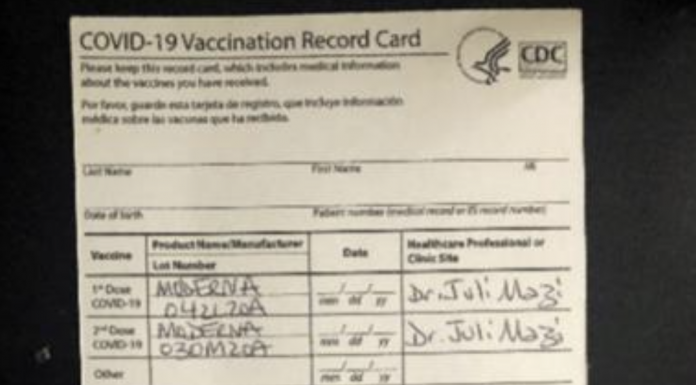WKMG ClickOrlando, ORLANDO, Fla. – As COVID-19 vaccine providers across the U.S. start rolling out booster shots, there’s concern about how the third dose could impact individuals and the side effects they could face.
The Centers for Disease Control and Prevention recommends people who are immunocompromised consider getting a third shot. A more detailed list of who that entails can be found here.
“So far today, only 3% of the population can get the vaccine,” said Dr. Rajiv Bahl, an emergency medicine physician in Orange City. “That could change in the near future.”
For now, the CDC says people who fall under that category should only get an extra dose of Pfizer or Moderna’s coronavirus vaccine. The third shot needs to be administered at least four weeks, or 28 days, after a patient received their second one.
Though it is too soon to tell, the CDC says early data shows side effects were similar to what one would experience after a two-dose series.
“Those side effects are short-lived in comparison to getting Covid-19.”
“We can confidently say side effects will be what people experienced from the second dose,” Bahl said. “This would be side effects like body aches, tiredness and maybe even a fever.”
The CDC said the most common side effects were fatigue and pain at the injection site. Overall, most symptoms were mild to moderate, according to the CDC … READ MORE.
Covid-19 Vaccines for Immunocompromised People
Updated Aug. 18, 2021
CENTERS FOR DISEASE CONTROL AND PREVENTION
What You Need To Know
- People who are moderately to severely immunocompromised are especially vulnerable to COVID-19 because they are more at risk of serious, prolonged illness.
- People with moderately to severely compromised immune systems may not build the same level of immunity to 2-dose vaccine series compared to people who are not immunocompromised.
- People who have compromised immune systems may benefit from an additional dose to make sure they have enough protection against COVID-19.
- CDC recommends people who are moderately to severely immunocompromised should receive an additional dose of mRNA COVID19 vaccine after the initial 2 doses.
- This additional dose intended to improve immunocompromised people’s response to their initial vaccine series is not the same as a booster dose, given to people when the immune response to a primary vaccine series is likely to have waned over time.
- CDC does not recommend additional doses or booster shots for any other population at this time.
- CDC recommends that people with moderately to severely compromised immune systems receive an additional dose of mRNA COVID-19 vaccine at least 28 days after a second dose of Pfizer-BioNTech COVID-19 vaccine or Moderna COVID-19 vaccine.
Data on Decreased Immune Response Among Immunocompromised People
People who are moderately to severely immunocompromised make up about 3% of the adult population and are especially vulnerable to COVID-19 because they are more at risk of serious, prolonged illness.
Studies indicate some immunocompromised people don’t always build the same level of immunity after vaccination the way nonimmunocompromised people do, and may benefit from an additional dose to ensure adequate protection against COVID-19.
In small studies, fully vaccinated immunocompromised people have accounted for a large proportion of hospitalized “breakthrough cases,” and that suggests immunocompromised people are more likely to transmit the virus to household contacts.
Who Needs an Additional COVID-19 Vaccine?
Currently, CDC is recommending that moderately to severely immunocompromised people receive an additional dose. This includes people who have:
- Been receiving active cancer treatment for tumors or cancers of the blood
- Received an organ transplant and are taking medicine to suppress the immune system
- Received a stem cell transplant within the last 2 years or are taking medicine to suppress the immune system
- Moderate or severe primary immunodeficiency (such as DiGeorge syndrome, Wiskott-Aldrich syndrome)
- Advanced or untreated HIV infection
- Active treatment with high-dose corticosteroids or other drugs that may suppress your immune response
People should talk to their healthcare provider about their medical condition, and whether getting an additional dose is appropriate for them.



